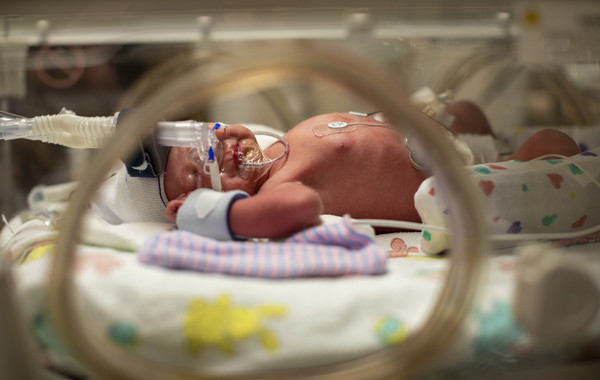A study has shown that newborns and premature infants have a higher risk of becoming critically ill when they get infected by Covid-19. Newborns are until the 28th day of birth, while premature infants are babies born less than 37 weeks pregnant.
New Covid-19 cases are increasing among children and adolescents, most of whom have yet to receive vaccines. As of Monday, the number of teenage Covid-19 patients reached 79,391, or 10.7 percent of the total, with those under 9 totaling 62,851, 8.5 percent.

There is no Covid-19 death among teenagers, but three under 9 died of the novel coronavirus. The first confirmed Covid-19 victim under 9 was a 26-week-old pregnant baby.
A joint research team, led by Professor Yun Ki-wook of the Department of Pediatrics and Adolescents at Seoul National University Hospital and Professor Choi Jae-hong of the Department of Pediatrics and Adolescents at Jeju University Hospital, has published a study analyzing the risk factors of developing into severe Covid-19 cases among young children and teenagers in the Journal of Korean Medical Science.
Out of 872 research papers related to severe Covid-19 cases, the researchers selected 17 studies involving newborns and infants less than three months old and conducted a meta-analysis into 10 of them.
The result showed that newborn babies under 28 months have a high risk of aggravating severe illness. Among those under 2, major risk factors were prematurity, obesity, diabetes, heart disease, nerve disorder, and weak immune deficiency.
On the other hand, the age of three months or younger and underlying conditions, such as asthma and development delay, were not risk factors of aggravating Covid-19 into critical states.
“Newborn babies and premature infants under 1 should be classified as Covid-19 high-risk group and placed under active monitoring and management. In addition, chronic diseases affecting immune functions are also risk factors,” researchers said. “These findings also need to be reflected on prioritizing hospitalization and vaccination.”

